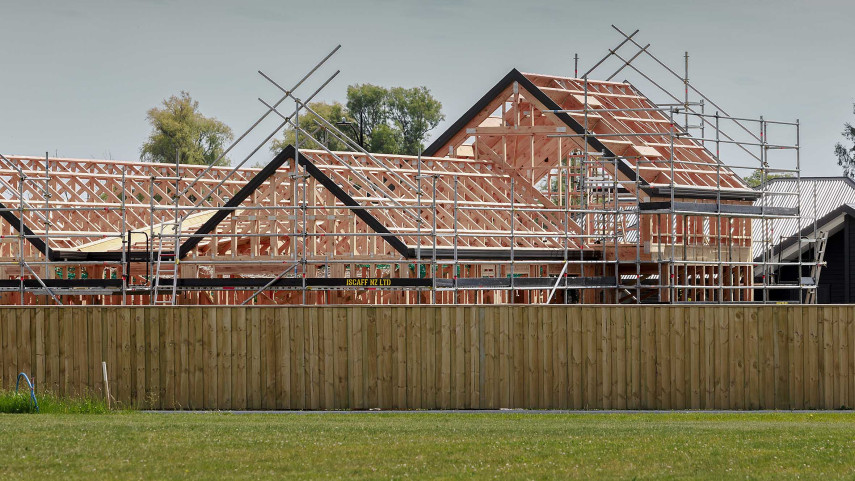Help with your earthquake repairs and rebuilds.
Rebuild with confidence
This guide is designed to assist you in the process of planning your repair or rebuild. It will help you to ask the right questions, rebuild with confidence and ensure your home is built right.
Do your homework
If you’re considering residential building work, there are consumer protection measures to help you and your contractor have a professional, no-surprises relationship. Knowing your rights and obligations should help you make informed decisions about your building work.
Building or renovating? Do your homework(external link).
Repairing and rebuilding houses affected by the Canterbury earthquakes
If you are working on Canterbury’s earthquake-damaged houses, this guidance (commonly referred to as the Residential guidance) includes building regulation requirements and engineering solutions.
Repairing and rebuilding houses affected by the Canterbury earthquakes(external link).
Repairing and rebuilding multi-unit residential buildings
This booklet will help you better understand the challenges of repairing and rebuilding multi–unit buildings. It has information and contacts to help you progress the rebuild or repair of your multi-unit property.
Repairing and rebuilding multi-unit residential buildings(external link)
A beginner's guide to the building consent processes
Information to help you plan your building project, get consent, build to the consent and legally complete your project.
Build Smarter
Free advice to homeowners on making homes warmer, drier, healthier and cheaper to run. An advisor will come to your home and talk with you about options for a healthy home tailored to your needs and budget. Available to all Christchurch homeowners including landlords. Particularly useful when undertaking earthquake repairs.
Community Energy Action
Free or subsidised insulation, efficient heating, recycled curtains and independent energy advice. Assisting homeowners and tenants in the greater Christchurch area including Mid and North Canterbury.
Community Energy Action(external link)
Energy Smart
Information and home assessments on insulation solutions for your particular situation and budget.
Consents and licences
The Christchurch City Council is responsible for issuing building consents within Christchurch and Banks Peninsula area. The Building Act requires you to obtain a building consent to undertake certain building work. A building consent establishes that the plans and specifications of your planned building work complies with the building code.
Ministry of Business, Innovation and Employment (MBIE)
Resolving problems, if you have concerns about the building work that has been carried out on your property the information visit resolving problems(external link) to see what steps you can take to resolve the problem.
Other useful links
New Zealand Registered Architects Board (NZRAB) is a statutory entity tasked with registering architects. NZRAB registers architects who have been assessed by their peers as competent to practice independently, maintains an online register, so the public can confirm that an architect is registered, reviews the competence of architects every five years, and investigates complaints and, if need be, disciplines architects.
Building contractors may be a member of an industry association, such as the Certified Builders Association of New Zealand (CBANZ) or the Registered Master Builders Association (RMBA).
These associations may offer additional guarantees and benefits to their members, and their members’ clients.
These associations also have processes for holding members accountable to standards of workmanship and business practice.
Visit the Certified Builders Association of New Zealand(external link) and Registered Master Builders(external link) for advice on finding a building contractor.
Engineering New Zealand(external link) is the professional body representing engineers in New Zealand.
Information about employing an engineer, including how to find the right engineer, standard contracts and what to do if dissatisfied with the quality of an engineer's work can be found on the Engineering New Zealand website.
Information about finding a financial adviser can be found at the Financial Markets Authority(external link) and Institute of Financial Advisers.(external link)
Licensed building practitioners(external link) are building practitioners who have been assessed as competent to carry out building work essential to the structure or weather tightness of residential buildings.
Building work that is critical to the integrity of your home may be restricted building work. A licensed building practitioner is required to design or carry out restricted building work.
The Licensed Building Practitioners (LBP)(external link) scheme covers seven licensing classes; design, site, carpentry, foundation, roofing, brick and block laying, and external plastering.
Registered architects and chartered professional engineers are automatically treated as design-licensed building practitioners and you can use them to do design-restricted building work.
The Plumbers, Gasfitters and Drainlayers Board(external link) (PGDB) is the statutory body which regulates these trades. Sanitary plumbing, gasfitting or drainlaying work can only be undertaken by tradespersons who are registered and authorised.
You should ask to see the current NZ Practising Licence card of a tradesperson before any work begins – this is confirmation that the plumbing, gasfitting and drainlaying work will be completed or supervised by someone qualified, competent and registered.
A public register of all certifying and licensed tradespeople is available at www.pgdb.co.nz(external link). You can use the search function to find contact details of specific individuals or to find the names and contact details of certifying or licensed tradespeople in your area.
If you are building or renovating you can find consumer information on the board’s website.
A quantity surveyor is the person responsible for figuring out just what a construction project is going to cost. They aim to keep projects on budget, among many other roles. The New Zealand Institute of Quantity Surveyors (NZIQS) is the professional organisation in New Zealand for quantity surveyors, estimators, cost managers and cost consultants in the construction industry.
Related news

New Council initiative to raise profile of eco buildings
Owners of energy-efficient buildings in Christchurch can now have that noted as a badge of honour on their property files.
27 Jun 2025
Minister has final say on housing density rules for Christchurch
The Government has issued its final decisions on a number of matters referred to it as part of the planning process for greater housing density in Christchurch.
6 Jun 2025
Minister declines more time for housing density decisions
The Minister Responsible for RMA Reform, Chris Bishop, has told Christchurch City Council it has until the end of this year to make final decisions about applying greater housing density rules across much of the city.
14 May 2025